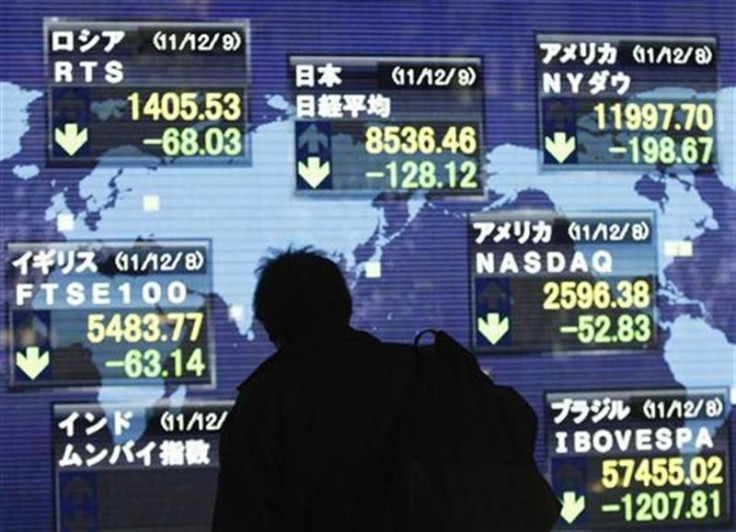Asian Stocks Fall As Japan Stimulus Hopes Fade

Most of the Asian markets fell Wednesday as investor confidence was weighed down by the lack of stimulus measures from policymakers to support the global economy and regain the growth momentum.
Japan's Nikkei Stock Average was down 0.22 percent or 19.86 points to 8910.02. Among major losers were Sharp Corp (7.25 percent), Kobe Steel Ltd (5.71 percent) and Ricoh Co Ltd (3.41 percent).
The Chinese Shanghai Composite fell 0.47 percent or 10.05 points to 2132.48. Hong Kong's Hang Seng was down 1.05 percent or 213.28 points to 20078.40. Among major losers were CLP Holdings Ltd (2.21 percent) and HSBC Holdings PLC (1.80 percent).
South Korea's KOSPI Composite Index rose 1.27 percent or 24.52 points to 1956.96. Shares of Samsung Electronics Co Ltd advanced 1.51 percent and those of Hyundai Motor Co climbed 1.63 percent.
India's BSE Sensex is closed Wednesday on account of the Independence Day holiday.
Investor sentiment turned negative as hopes that policy makers were considering monetary measures to be taken to rejuvenate the economy faded.
The U.S. Commerce Department reported Tuesday that the retail sales rose 0.8 percent in July up from a decline of 0.7 percent in June. The rise in retail sales is an indication that the U.S. economic growth is reviving moderately.
However, market participants sense that this will reduce the chance that the U.S. Federal Reserve will announce stimulus measures to support the economy. Investors are hoping that the debt crisis faced by the euro zone and the faltering U.S. economy would push the Fed to take these quantitative easing measures to boost the economic growth.
Earlier this month, Federal Reserve Chairman Ben Bernanke underlined that the Fed remained prepared to take action as needed to protect the U.S. economy if financial stresses were to escalate. Investors feel that bold measures, including easing in the monetary policy, are urgently needed to boost liquidity in the global financial system.
© Copyright IBTimes 2024. All rights reserved.











